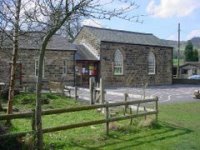"The Politics of Envy"
A villager wrote to DDC to explain his concerns about the way that the proposed closure of Combs School has been handled by the Council.
A Flawed Planning Process
The consultation process, that this letter is a tiny part of, is portrayed by the Council as a fair one: it’s anything but.
The Council began the process by disseminating incomplete and inaccurate information. The School doesn’t cost what the Council said it does; the demand for the School is higher than the Council said it was; the travel patterns in the valley aren’t what the Council said they were; the transfers to other schools after the Infant stage don’t happen as the Council said they did.
The Council has said that they looked at the problem of surplus places for three years before starting this consultation, and yet they didn’t provide ‘the other side’ with fully accurate information at the beginning of the very short consultation period.
Having seen the formal responses being submitted by the School Governors and the Village Hall Trust – and some of the many letters that have been sent to you – I know that you are in receipt of very cogent arguments for why the School should remain open.
I am worried, because I feel that the Council’s proposal is motivated by the politics of envy – “why should people have an excellent rural education for their children when others don’t?” – and the cogency of the arguments put forward in opposition to the Council’s plans will be used against us, serving to reinforce the Council’s prejudiced view of Combs being a privileged area. I sincerely hope that this won’t occur.
In any case, the strength of the arguments won’t be reduced, and the Council’s plan won’t actually produce the results that the Council says that it wants.



.jpg)
.gif)
